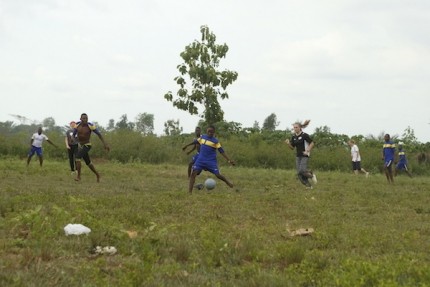
“Sport draws people together and creates community. It’s really neat how just one single soccer ball and an open field can bring people together. You can have a relationship with someone even though you don’t speak the same language.” – Stephanie McDonald, Benin LIFE Team trip co-leader
When sports are used in conjunction with humanitarian work, great things can happen. In May, GAiN partnered with SportAid, a non-profit organization that uses sport as a tool to help impact disadvantaged communities, to organize a trip to Benin with the Trinity Western University women’s soccer team.
The team of 25 women, plus 12 others (coaches, family members and media), flew to Benin expecting an eye-opening and challenging experience.
On their first full day, the team went on a tour of four different villages, seeing the progression of a village without a well to a village with a full-working deep-capped well. They started with seeing firsthand where villagers had to go to get their water — a swamp situated at the bottom of a hill. The sight of a woman gathering dirty water into a basin really impacted the team, many of whom had never left Canada before this trip, bringing the heartbreaking reality of the water crisis right before their eyes.
In the second village, they got to see the well-drilling team at work and ask them questions; while in the third village, they had the chance to witness the flushing of a well. This is a necessary step in the installation process, where dirty water is sprayed from the well before eventually spraying clean water. The transformation from seeing brown and muddy water to clear water was an inspiring sight for the team.
Lastly, they visited a village with a completed well that was in full use.
Some of the team got to help get water for villagers, using the hand pump and carrying water basins on their heads.
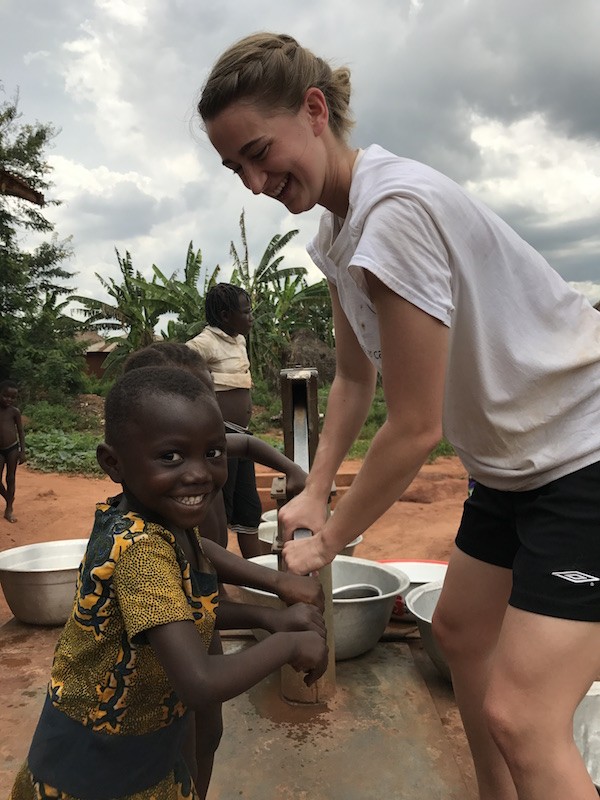
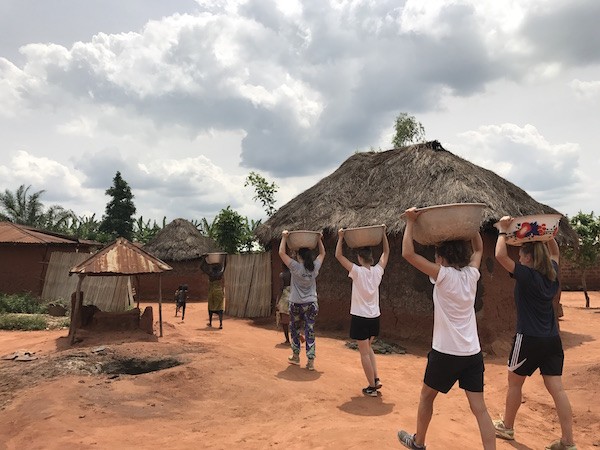
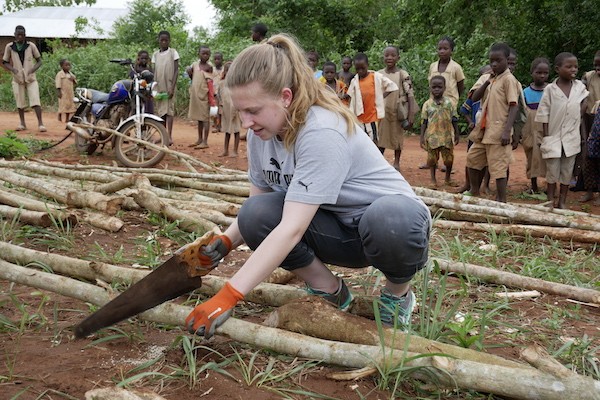
The rest of the trip consisted of soccer games, village chores and construction. The team split up into three groups to build concrete pads for wells and help construct church buildings.
Of course, soccer played a significant role during their time in Benin. The women had a chance to play with the local soccer team (all men), splitting into two mixed teams of women and men, instead of playing against them. Later in the trip, they also played against a local women’s team, further experiencing the power that sport has to break down cultural and language barriers.
“The community speaks the language of soccer even though we have this language barrier,” Brooklyn, one of the team participants, said, recalling a day they played a soccer game outside the house and people gathered around to spectate. “It was so fun to have the community come out and watch us play [even though] they didn’t know us and we couldn’t speak to them.”
It was the relationships that they made with village children that really stuck with the team, McDonald observed.
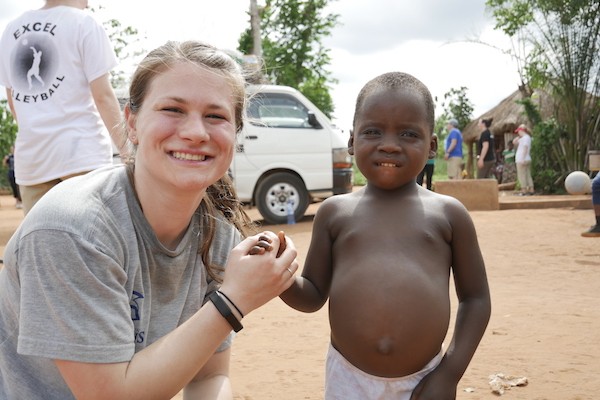
“A highlight with a lot of the women was playing with different kids in the villages and getting to use something that a good portion of their lives is consumed with. Playing soccer can be used to engage and show love to people.”
“It was amazing to see how these kids get such joy out of having a soccer ball,” expressed Brooklyn. “[Something] that brought sheer joy to me was that whenever we brought out a ball, even though there was a language barrier the kids instantly knew we were just playing soccer. [They] split up into two teams.”
The slowed down culture of Africa and the meaningful relationships they made during their short trip inspired the team to be more present in their everyday lives when they returned home.
“They want to make the relationships here, back in Canada, more meaningful through touch and face-to-face,” McDonald explained. “Quite a few women had told me [they] were challenged to bring that aspect back home.”
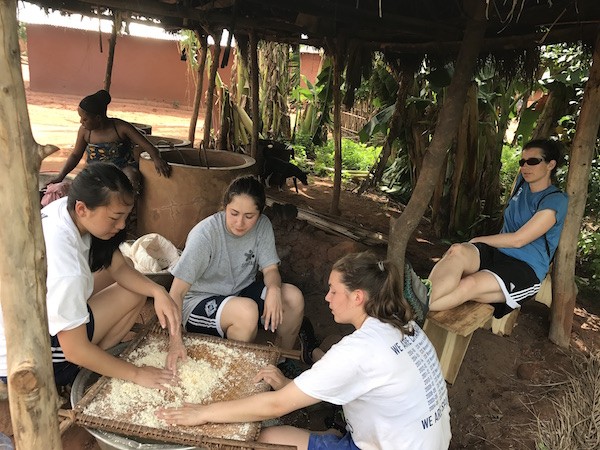
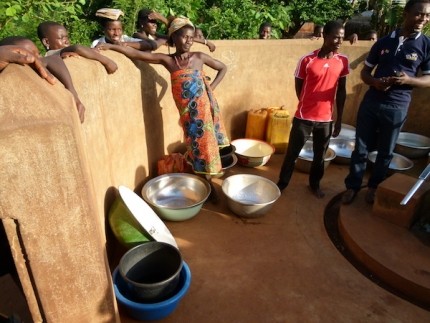
In a village where you have to put chemicals into dirty water to make it drinkable because cleaner water is 15 kilometres away, it is no surprise that providing a deep-capped water well becomes a major event.
That is what happened in Hountakon, Benin.
The entire village came out to watch the installation of a new water source that would provide them with accessible, clean and safe water.
Hountakon’s well was just one of 55 wells that our Water for Life Initiative (WFLI) team visited during their trip to Benin and Togo in April 2016.
Adjaha Vodje, Benin also received a well, which has made a significant physical and spiritual impact on the village.
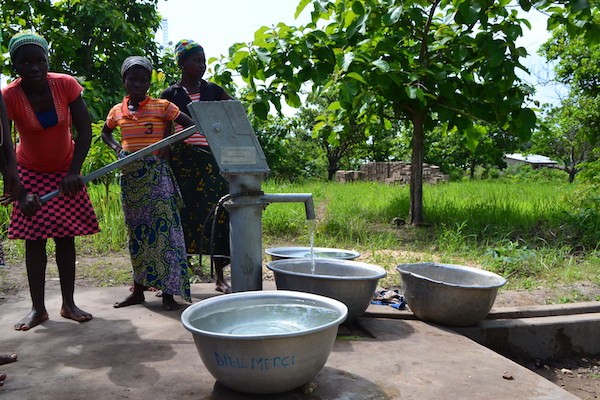
Before the well, people were forced to spend the entire night searching for enough water to fill a bucket. Dry seasons were the worst. Some people would even travel to a city and buy water.
“The need for water is really big and it has been a great tool for us to demonstrate God’s love in the area. The water is really giving true life to every person,” said Pastor Ansel, local pastor. “The presence of the water well in the village has eliminated the fatigue of people and the difficulties that we had to face in the past. I lack words to describe what it means to us!”
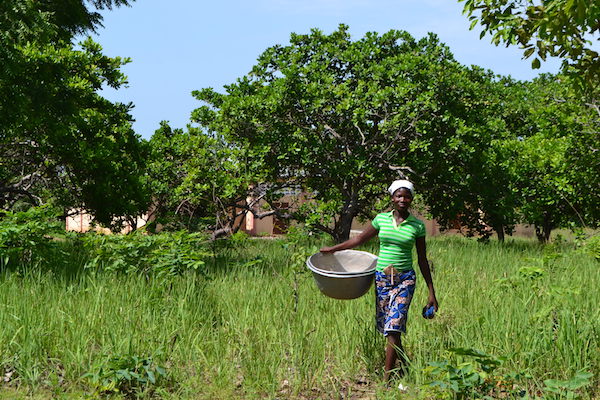
The team noticed that in southern Benin, more villages desire to upgrade their wells to a water tower. In fact, many are getting access to electricity or can rent a generator for 2,000 CFA ($4.40 CAD) per day.
Gbeze-Mouzouhoue, Benin is one of the villages that has upgraded their well by installing an electric pump.
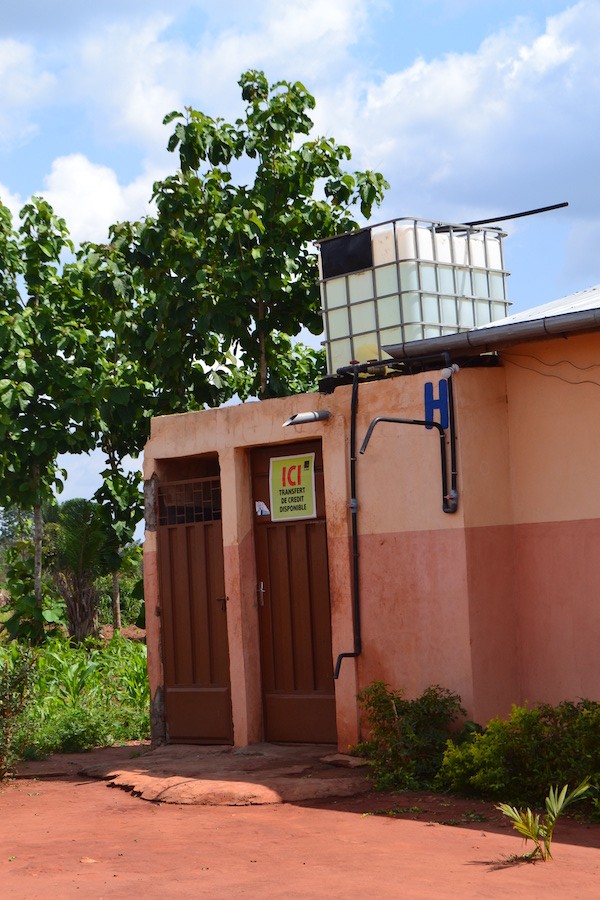
The village used to rely on rain water that was collected in a tank that sat on top of the village clinic. The clean water provided by the well means that the medical clinic can run more efficiently and cleanly.
“When the patient is thirsty, they cannot wait until the water to come from a distance! And it’s so precious for us and it’s really helpful to performing our job well,” the clinic’s head nurse commented. “When you come to a clinic and have no water to wash the body, people just won’t come!”
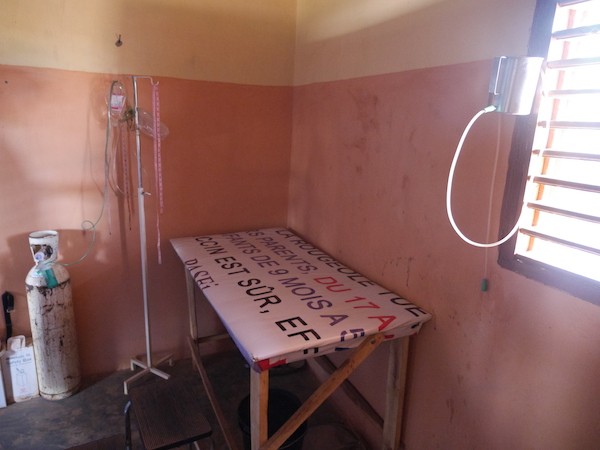
Now that clean water is accessible, villagers no longer have to worry about going 10 km to the next village for unaffordable water. They are able to pay only 25 CFA ($0.05 CAD) per 20L of water, with the money going toward the maintenance of the pump.
Wells are also changing lives in Togo. We provided a well to the village of Zooti Kpota back in August 2015. Since then, the well has continued to provide clean water for the village.
We also partnered with the JESUS Film Church Planting Strategy who partnered with a local church in the village. About eight months later, the local pastor was able to talk about how inspiring the changes have been to the church and its people. Churches have been growing in number and church members have been growing in their faith. He also spoke with great enthusiasm about some of his visions for other projects. One thing he plans to do is start a latrine project in the village for proper hygiene and sanitation.
The positive effects of a water well in a village can be seen quite quickly and with each passing year and the faithful support of our partners, plans will continue to be implemented so that lives are transformed.
WOULD YOU PARTNER WITH US TO HELP IMPACT EVEN MORE COMMUNITIES?
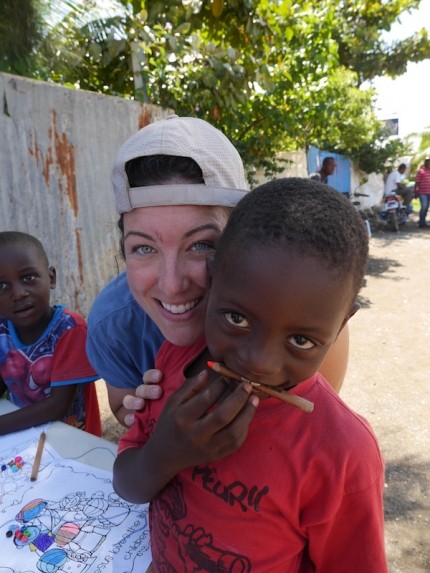
“I held a baby who had been left in the dump, being eaten by rats, and my heart broke again; this time seeing starving children and animals [in] the conditions that they live in and the suffering they endure because they cannot access simple medical care,” Sherri said of her first and then her most recent trip to Haiti with a GAiN LIFE Team.
It was from a young age that Sherri knew her calling was to serve the needy overseas. While searching for mission organizations, she came across GAiN and felt its mission statement aligned with her calling. With further digging, she discovered that there was an upcoming LIFE Team to Haiti which would provide the chance to lead children’s camps and do medical check-ups at Ca-Ira Orphanage and the surrounding community of Leogane.
“I had served in Haiti [on another trip] a few years ago and God broke my heart for the people of Haiti. To be able to return to this resilient country was an answer to prayer.”
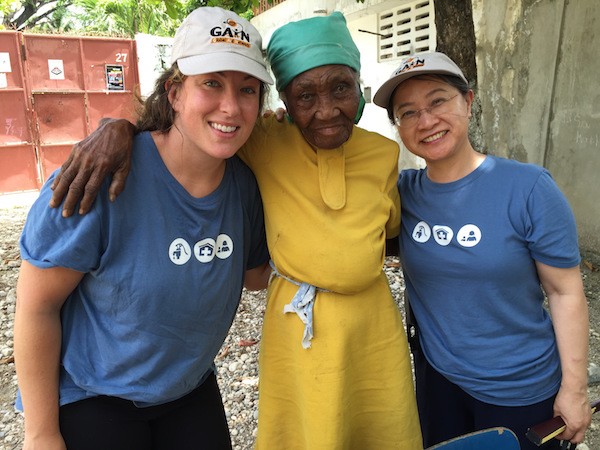
Sherri’s skills as an emergency nurse proved valuable to the medical portion of the trip, where the medical team (consisting of Sherri, a physician and translator) conducted hygiene and sanitation seminars, performed medical check-ups and provided basic medical care at Ca-Ira Orphanage and the outside community.
When she wasn’t doing medical check-ups or health teachings, Sherri helped lead children’s camps where she got to interact with hundreds of kids while running the bracelet-making station.
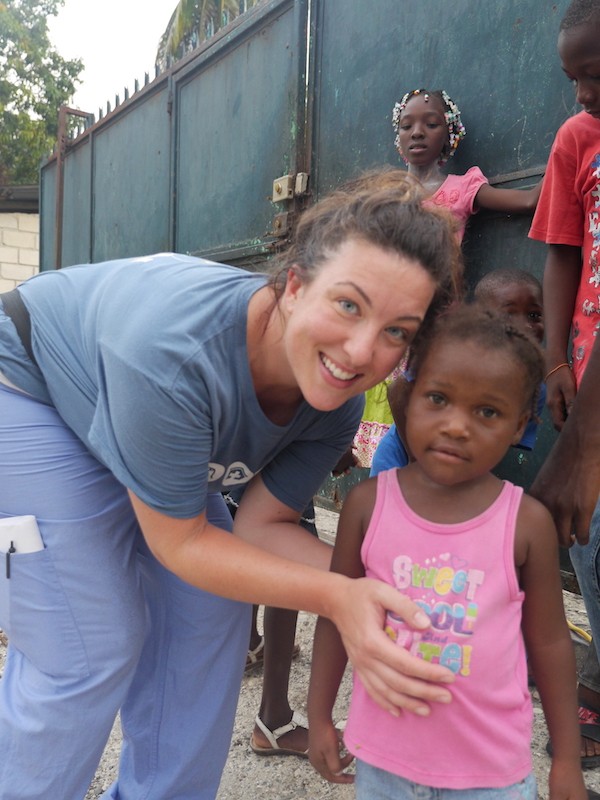
The chance to demonstrate God’s love also came in a variety of other ways, including a day of construction work at the orphanage, doing outreach in the community by distributing bags of food to families living in extreme poverty, praying for them and inviting them to a screening of the JESUS Film.
“[On] our last day there, driving back to the airport, I was still stunned by the piles of garbage everywhere and the lawlessness of the country. Yet, despite extremely difficult circumstances, they are a resilient people who have so little, yet, will share anything they do have. They gather for hours to worship God with no time limit. Instead of focusing on their pain, they turn to God, wholeheartedly and rely on Him to meet their needs.”
“The trip far exceeded any expectations that I did have,” Sherri stated. Her experience on the LIFE Team only intensified her desire to continue demonstrating the love of God to the broken.
“As an emergency nurse, I often see that life is full of unknowns and I cannot encourage you enough to just go, taking this pause in the midst of your busy life, to serve the hurting and needy people [for] a chance to show God’s love in ways that would not be possible otherwise.”
WOULD YOU LIKE TO HAVE A SIMILAR EXPERIENCE AS SHERRI’S? CLICK HERE TO CHECK OUT OUR UPCOMING LIFE TEAM PROJECTS.
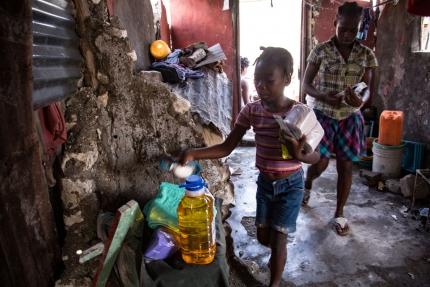
4 November 2016 – As Haiti struggles to recover from the massive destruction wrought by Hurricane Matthew, which pummelled the tiny island one month ago today, the United Nations warned that while its seems as if “the world has moved on,” Haiti’s needs are vast, exemplified by the nearly 600,000 children being stalked by disease, hunger and malnutrition and in need of assistance.
“One month after the hurricane, life for more than half a million children in Haiti is still far from back to normal,” said Marc Vincent, Haiti Representative for the UN Children’s Fund (UNICEF), in a news release. “Too many children are still homeless, hungry, out of school and in danger. We are scaling up our response and are determined to help as many of them as possible as fast as we can.”
UNICEF said there have been at least 1,000 suspected cholera cases among children in the past month. Out of 219 cholera treatment centres in the country, 18 have been damaged in the worst-hit departments of Grand’Anse and South, further complicating efforts to contain the disease.
The total destruction the Category 4 storm inflicted on crops, food stock and livestock in some of the worst affected areas have left over 800,000 people in need of immediate food assistance and more than 112,000 children at risk of acute malnutrition.
An estimated 50,000 children have been left homeless and are staying in temporary shelters. Another 3,500 children living in institutions need help accessing nutrition, water and sanitation services.
More than 700 schools have been affected and about 86 schools have been used as temporary shelters, causing school disruption for at least 150,000 children.
UNICEF is working with national and other partners to provide basic assistance to the most vulnerable children. They are providing 100,000 people a day with safe water, organizing a cholera vaccination campaign that will be launched next week to immunize up to 900,000 people, and providing cholera prevention kits that contain water purification tablets, soap and oral rehydration salts. Between 100 and 200 kits are distributed every day.
In addition, they are delivering an integrated package of services to prevent and treat malnutrition among children under five as well as pregnant and breastfeeding mothers living in the hurricane affected areas, replenishing vaccines and restoring the cold chain so that routine immunization can resume in the health centres that are still operational and in mobile clinics, and distributing emergency medical supplies to 18 health centres.
Joint actions also include setting up mobile child friendly spaces where vulnerable children and families can receive psychosocial support, and training 60 volunteers to staff them, and repairing 22 schools and distributing school-in-a-box and early childhood development kits so that children can resume their learning as soon as possible.
UNICEF requires over $23 million through the end of the year to meet children’s humanitarian needs following the hurricane, including for the cholera response. So far, it has received a mere $6 million.
Jens Laerke, spokesperson for the Office for the Coordination of Humanitarian Affairs (OCHA), told reporters in Geneva that, according to the latest figures from the authorities in Haiti, Matthew has so far caused 546 deaths and left 438 people injured.
He said that needs are vast, especially in the areas of quality water, education, shelter, child protection, health and nutrition. A total of 1.4 million people are in need of humanitarian assistance, and an estimated 40 per cent of them are children. The UN emergency humanitarian appeal for $120 million is far only 33 per cent funded.
Haiti needs support to restore, rebuild health services
Haiti needs support to restore and rebuild its health services at various levels, ranging from cholera treatment centers to community health centers to major hospitals, according to Dr. Jean-Luc Poncelet, the Pan American Health Organization/World Health Organization (PAHO/WHO) representative in Haiti.
In the country’s South, “the government faces challenges in restoring health facilities in affected areas and urgent repairs to restore functionality have been identified,” he said.
In Sud Department, 28 per cent of health facilities sustained severe damage and eight per cent are closed, while in Grand’Anse, 43 per cent of health facilities were severely damaged and seven per cent are closed. Of the 74 cholera and acute diarrhea treatment facilities in Haiti, 34 are fully functional, while 40 sustained various levels of damage.
Restoring health services to a functional level requires not only fixing structures, but providing electricity and water and sanitation, as well as helping many health workers who themselves have been severely affected by the hurricane’s destruction, according to the Haiti Ministry of Public Health.
“The major needs are to renovate existing health structures with durable repairs, to increase humanitarian assistance to rural areas, and to improve water quality and sanitation,” Mr. Poncelet said.
The latest figures from the Haitian government show that 175,509 Haitians are still living in shelters, while more than 1.4 million people are in urgent need of humanitarian assistance.
PAHO/WHO teams identified five priority areas of action for the health sector, estimating that $9 million in emergency funding is needed to carry out essential activities.
These priorities are: restoration of health care delivery capacity and access to health services in the most affected areas; increased epidemiological surveillance to support early detection and timely management of disease outbreaks; intensification of vector-control and protective environmental health measures in impacted areas; rapid and effective response to cholera outbreaks in affected communities; and support for efficient coordination of humanitarian assistance and management of information to effectively address the most urgent humanitarian needs.
A vaccination campaign is planned to start Nov. 8, targeting 820,000 people in 16 communes affected by Hurricane Matthew and that have reported cholera cases or deaths. To prevent additional cholera cases, which are likely to increase in the rainy season from now until December, it is also important to advance on water purification, health promotion, and sanitation at the same time.
Bettina Luescher, spokesperson for the World Food Programme (WFP), said that the agency has delivered food to 400,000 people, as part of its work to support the Government in its work. The situation is dire on the ground, with huge logistical challenges, but together with its partners WFP has reached people by truck, helicopter and boat.
Some 140,000 people are still displaced and living in temporary shelters. The food situation is worrisome: in areas hit by the hurricane crops have been destroyed, along with livestock and seeds, local markets are running out of food and the prices of imported goods are rising.
The planting season is supposed to happen this month and will be affected, which meant in turn that the next harvest, in the early months of 2017 will be affected. WFP aims to reach 800,000 people. In order to do that, it has appealed for $58 million overall and still needs $40 million urgently.
(Source)
(Image Source: UNICEF/Roger LeMoyne)
IF YOU WANT TO KNOW MORE ABOUT HOW GAIN IS WORKING IN HAITI, CLICK HERE.
Water is a scarce commodity in the village of Nandili in Southern Tanzania.
Before we provided a deep-capped water well in this village, the people had no option but to travel 18km to find clean and safe water.
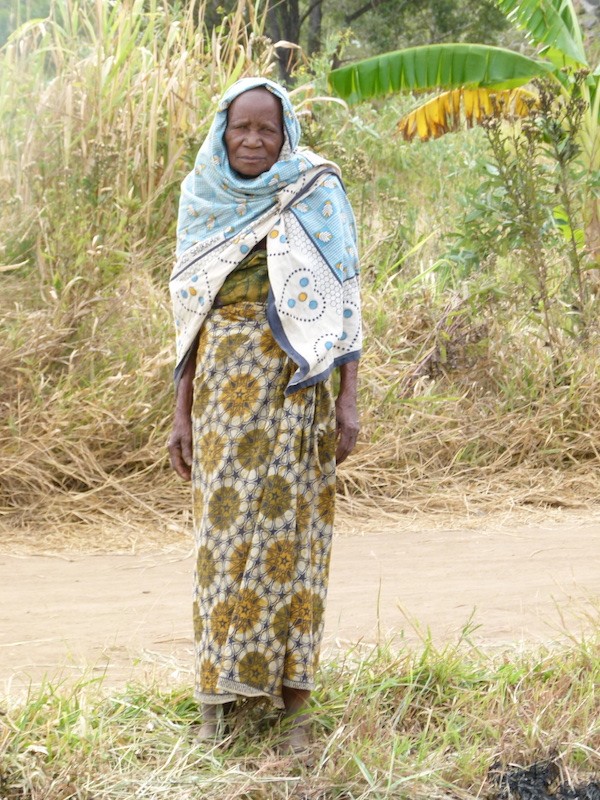
Women used to spend most of their day travelling to collect parasite-ridden water on the back of bicycles.
Fortunately, that has all changed.
Women are now able to stay home and care for their families.
Children are able to have a meal and go to school with clean uniforms. They spend less time fetching water and more time studying.
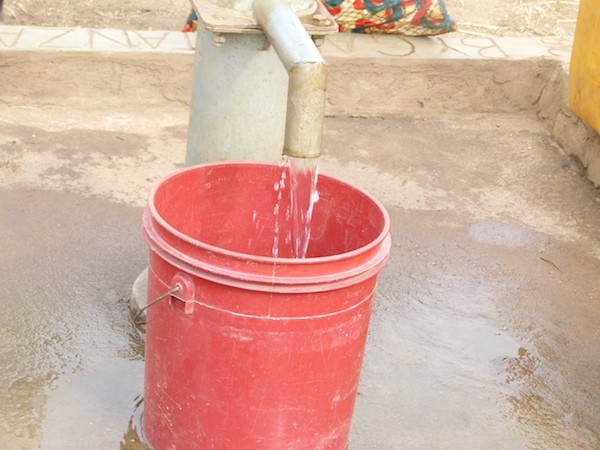
The well is located next to the primary school where the children can fill there jugs as they walk to class.
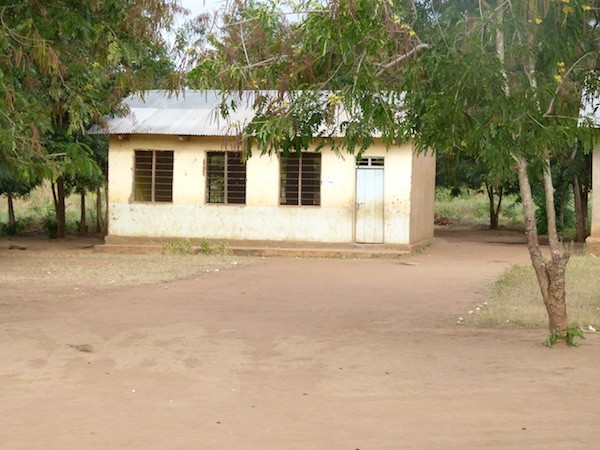
Most of the classes meet outside, which means they can’t study during the rainy season.
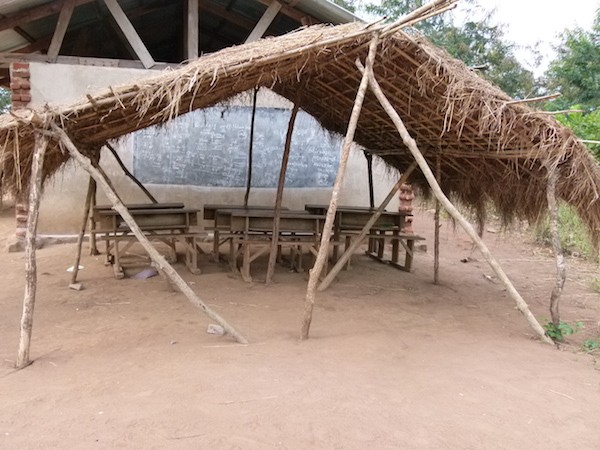
As a result, the village has plans to use the water from the new well to make bricks for new school buildings.
Nandaili’s well brought transformation to the villagers.
Both daily water use and education were radically impacted. Both worked hand-in-hand in providing freedom, safety and hope.
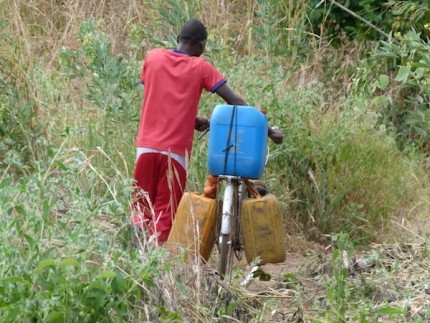
The farming village of Kimawe in Southern Tanzania is surrounded by hills.
As the country enters its dry season, there is an especially great need for clean and safe water in this area.
Villagers travel up to three hours to find water, crossing farmland and over hills for a single bucket of water that wasn’t even clean.
In a desperate attempt to get water, the village gathered the young people and tried to dig to find water. They tried many times but did not succeed.
When GAiN’s Water for Life Initiative came to Kimawe and provided a deep-capped water well in the center of their village, it gave them much more than just clean water.
It gave them more time to spend with their families, to farm and to get an education.
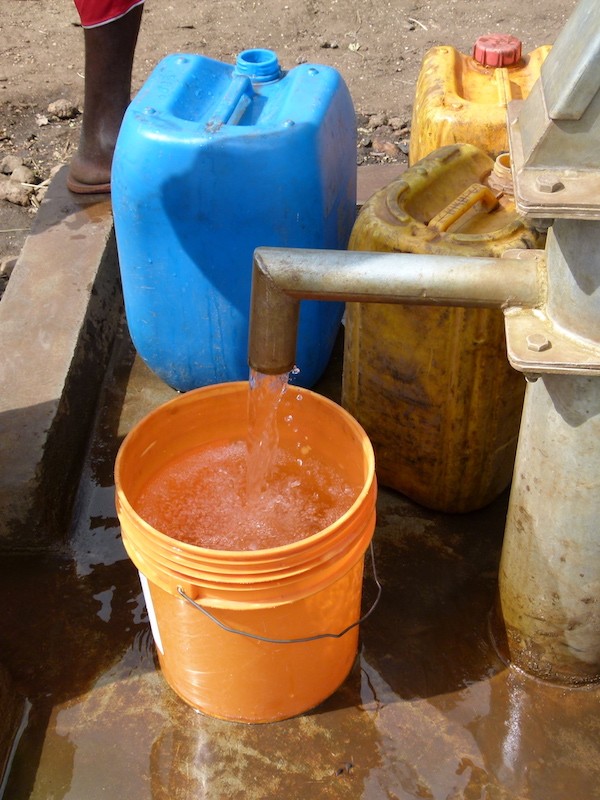
The families of this village benefited greatly from the well because the women were now able to stay home and care for their families and provide meals for their children.
They were grateful for the gift of clean water and AMAZED that the people in Canada would think of them in Southern Tanzania.
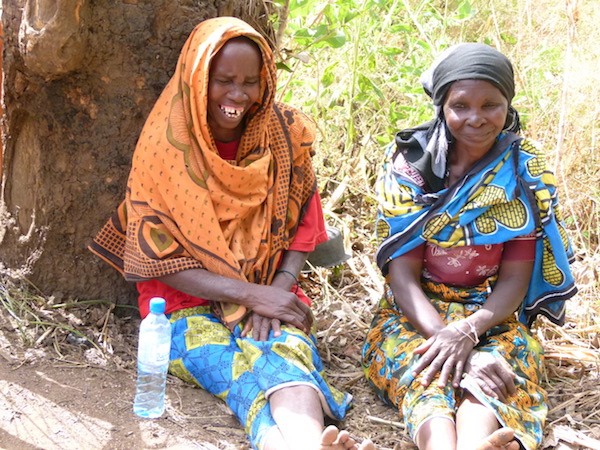
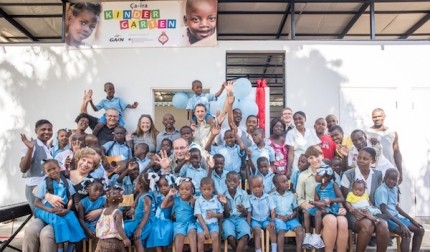
It’s been more than six years since Haiti was hit with a 7.0 magnitude earthquake on January 12, 2010. About 316,000 people were killed, one million people lost their homes and 100,000 children became orphans. The living quarters of Ca-Ira Children’s Village, an orphanage on the coast of Leogane (the epicentre of the quake) was shaken to the ground – resulting in the death of five orphans and two staff.
After providing emergency relief and running medical clinics with volunteers during the first six months after the earthquake, we decided to get involved in reconstructing Ca-Ira, knowing that it would be a long-term project. This initiative was led by GAiN Germany with support and contributions from other GAiN offices.
We played a key role in not only providing funding but also sending in staff and volunteer LIFE teams 2-3 times a year to help with the reconstruction efforts. As of April 2016, we sent a total of 19 LIFE Teams (180 total participants) to Haiti since the earthquake. This includes volunteers who were involved in emergency relief, as well as construction.
Our Project Associate Sam Bechard first visited Haiti with a LIFE Team in 2012 and the country was still in crisis mode – even two years after the earthquake. “When we drove outside, we saw house after house underground. We still saw the devastation and the suffering on the faces of people. They lost family members, a few staff and children. They couldn’t talk too much about the earthquake at that time – it was too fresh. They were [still] in shock and in survival mode.”
At the time, there were just temporary structures built since the earthquake: a temporary kitchen with a roof, put together from a few pieces of wood; a tiny, crammed room that served as a temporary dorm for 30 kids; a church without a roof; and a temporary bathroom. Reconstruction for permanent buildings had just started.
Fast forward to 2016 and a few new buildings have been completed: a new girls’ dorm and boys’ dorm, a guesthouse and kindergarten buildings.
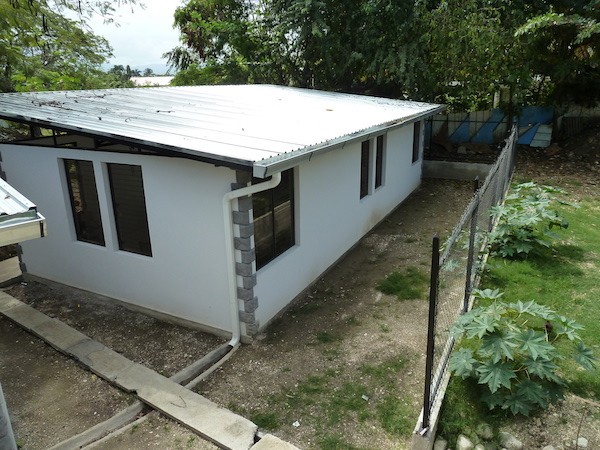
Hardworking local teams, LIFE team volunteers from various GAiN offices, and even former children from the orphanage helped in the construction.
In January 2016, an opening and dedication ceremony was held to celebrate the completion of the kindergarten. Staff and children from the Ca-Ira, as well as delegates from the US and GAiN Germany were in attendance.
The children now have a safer learning environment – a major upgrade from the old, tiny, moldy shack that served as a temporary learning space. The new kindergarten is made of two buildings, which consists of three classrooms and two teachers’ rooms. The buildings are brighter and more spacious (96 sq. m, compared to the 15 sq. m shack) and were designed to cool down temperatures and reduce the amount of mosquitos in the building.
While reconstruction is a priority, we recognize the importance of not just rebuilding the structures that collapsed, but also rebuilding the community by investing in the education and development of the children.
For the past three summers, our LIFE Teams have been running a children’s camp for two weeks for children in the orphanage and surrounding community. Kids get to participate in Bible lessons, worship services, arts and craft stations and team games.
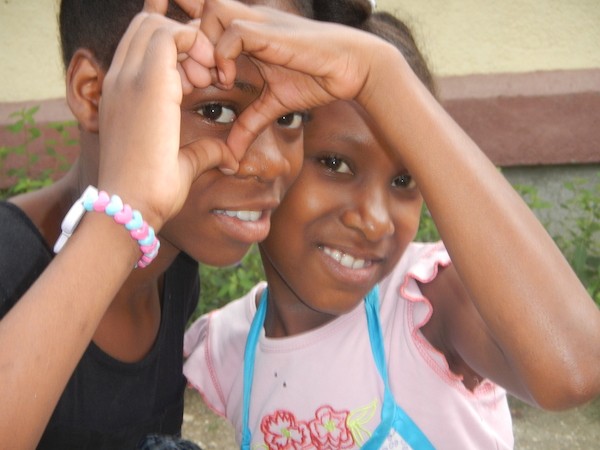
It’s also at these summer camps that some of the older kids from Ca-Ira get the opportunity to practice their leadership skills and become role models to younger kids. This group of young leaders, in their early to midteens, are called the Battalion. GAiN has been involved in training these kids to develop their skills in areas such as leadership, sharing the gospel and public speaking. Bechard has seen significant growth in these kids, including their involvement in the kids’ camps, outreach projects, community service, and setting up for screenings of the JESUS Film.
Some of the Battalion kids grew up in Ca-Ira decided to stay after graduation so they could use their skills to give back to the community that played a part in their upbringing.
“We are investing in the next generation and their future,” Bechard explains. “This orphanage will raise the next generation of leaders, musicians, school teachers, and business men.”
Our work at Ca-Ira also extends into serving the surrounding community. One of those ways is distributing small food packages to families in the Ca-Ira community, surrounding the orphanage. LIFE teams join members of the local church, along with a translator, and hand out packages of food containing practical items such as rice, oil, sugar and salt.
“The packages aren’t large, but they are enough to be a helpful blessing to families in the area that are struggling to provide for their families,” explains Lindsay Schacter, LIFE Teams Manager. “Oftentimes, the teams are able to visit some of the same families previous teams have visited, providing an opportunity to build ongoing relationships between our team and the Ca-Ira church with community members.”
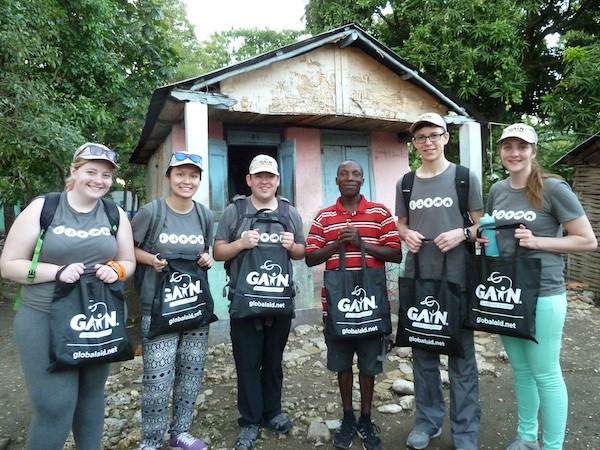
Another way that we are investing in the community is through community health programs and medical clinics.
We run mobile medical clinics onsite at Ca-Ira, giving the children an opportunity to see a doctor. In 2015, nurses were able to perform a basic health check on all the children at the orphanage.
“From running mobile clinics in various locations in Haiti over the past five years, we learned early on that one of the greatest needs in the area of health was not for clinics, but for basic health education,” says Schacter. “Mothers especially desire to care for their children and give them the best start in life but are often ill-equipped to care for them both through a lack of access to health care, but also simply through a lack of understanding about topics such as hygiene and sanitation, nutrition and the spread of illness.”
In 2015, our LIFE Team hosted community health education on different topics. There were training sessions for orphanage staff and an open session for members of the community, where they could learn and ask questions.
While a lot has been done, Schacter and Bechard acknowledge that there is still a lot of work to do in Haiti, the poorest country in the Western Hemisphere. But they are hopeful for the future after looking back at how far the orphanage and the people in the surrounding community have come since the earthquake.
“When I look to the future, I see our local staff and children becoming key leaders in the community,” says Bechard. “I remember when we planted some mango trees on the ground, around the building. After a few years, they are now growing and bearing fruit. [In the same way,] we started from nothing and needed to rebuild everything, but now our work [is bearing] fruit. We’re building a future where they had no hope. The children can now focus on their school, focus on playing music and dancing. They are back to being children, living in security, playing without fear and smiling like never before. They have a home.”
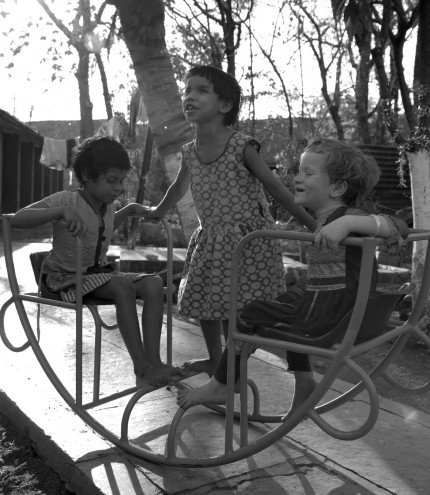
Having only a 7th standard education, poor and struggling to make ends meet, Sakshi’s parents felt caught in a web from which they couldn’t free themselves. Their little daughter had special needs: she was an albino and virtually blind. In rural India, many people have misinformed, cruel beliefs.
Parents of children with special needs suffer from these beliefs that are often inflicted on them…indeed the parents themselves may believe that thy have been cursed by the gods for some unknown evil they committed and can’t undo. Their lives can be miserable, isolated from others, and they inwardly suffer.
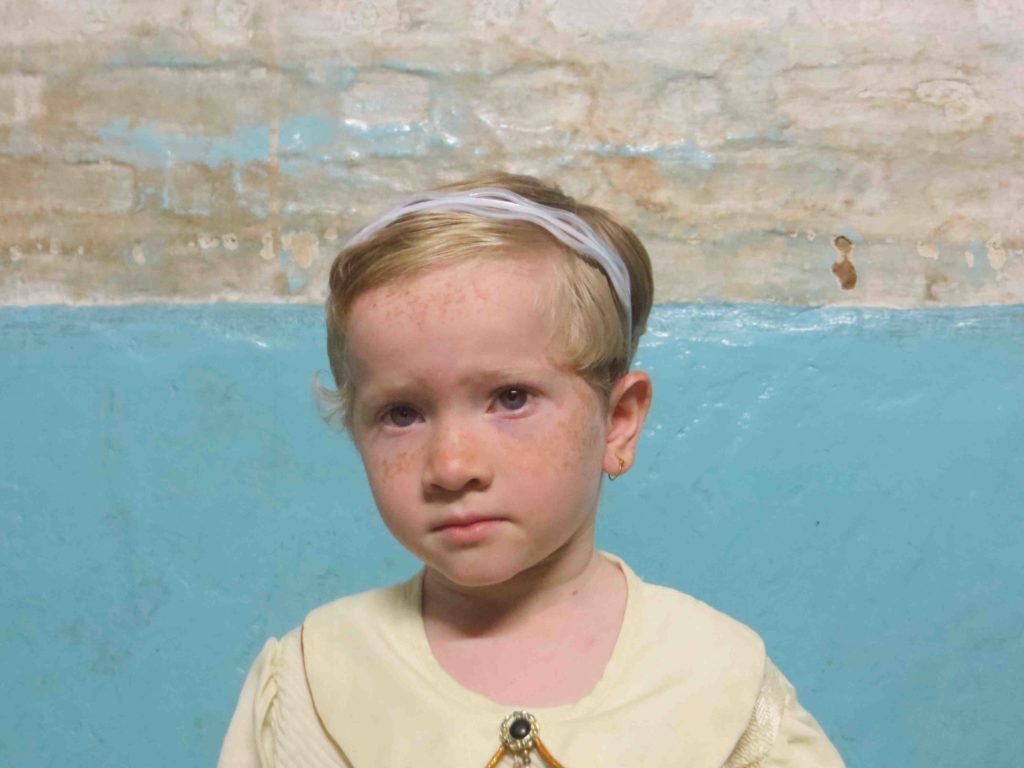
External sufferings can pursue them as well. Sakshi’s parents worked long days in the hot sun in the fields for pitiful daily wages. Not able to leave their small daughter at home along, they took her into the fields with them. They had to worry about her wandering into hazards, unaware of dangers she could not see.
Since her skin had no pigment for protection from the sun’s rays, she often burned from sun exposure. Her eyes ached from the brightness of the sun and rendered her blind. In the dark, she could see a little and the eye pain eased.
Sakshi’s uncle knew of an amazing home. Someone near to him had a daughter, Ranjanan, who lived and prospered at Mukti Mission. She, too, was an albino who had been born into very similar circumstances. Entering Mukti as a toddler, Ranjana now was studying in college to become a teacher. These folks urged the uncle to encourage Sakshi’s parents to bring her.
How grateful they were!
Only a few days after being admitted into the Bougainvillea Family, Sakshi is being doted on by loving Mukti caregivers. Donned with a ruffled white bonnet to protect her face from the sun, she climbs into the arms of staff that cheerfully carry her about, introducing her to the vast wonders of her new home!
God’s love has been poured out toward those who would surely suffer from lifeliong inequalities and discrimination. Uniquely and wonderfully made, these little ones will have opportunities at Mukti that likely would have been impossible for them otherwise.
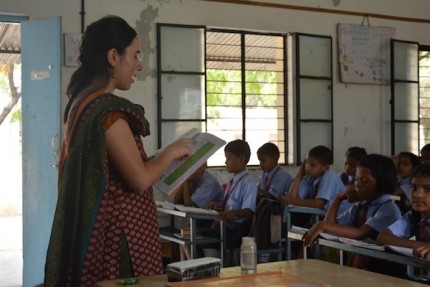
Written by Erika Pettigrew, LIFE Team participant
Money, school, friends, or family? Work, or vacations? Doubt, or fear? Maybe you think you can have the most impact close to home – that serving others short term hurts more than it helps. Maybe you’re scared or you don’t feel ready. You might feel like it’s not the right time. You might not want to go at all. Or maybe you want to go but don’t know where or how.
I’m going to tell you three reasons why you should consider joining a LIFE team this summer and how going on a project has changed my life.
Why you should join a LIFE team?
1. YOU CAN MAKE A DIFFERENCE
I don’t need to tell you that there are people around the world living in extreme poverty. Most of us are aware that hundreds of millions of people are currently suffering from abuse or lack of resources, yet we often don’t know what we can do to help. LIFE teams are a great way for you to get involved in the solution and actively work for change. I decided to participate in the India Summer Project last year because I longed to help women and children who were experiencing injustice. While I was serving at Mukti Mission, I had the opportunity to share hope with fatherless children and destitute women who had experienced terrible suffering. I am thankful that I was able to take part in making a difference, even if it was small.
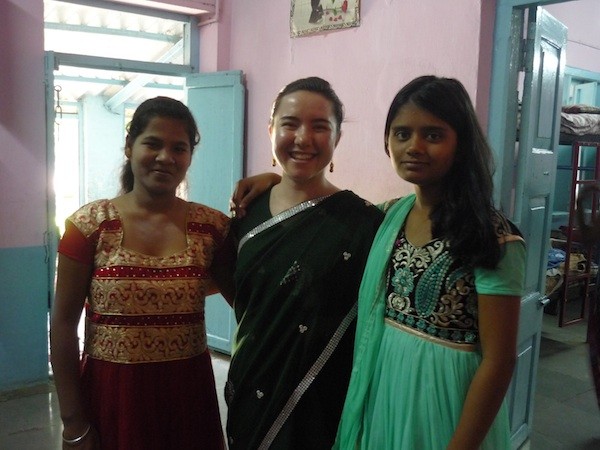
Whether it’s going to Benin to work with the water wells, running summer camps and health training in Haiti, or caring for orphans and widows in India, you have an opportunity right in front of you to help others in need.
2. IT’S WORTH IT, EVEN IF IT’S SHORT
You might be wondering whether it’s worthwhile to travel across the world to do ordinary work that many other people could do.
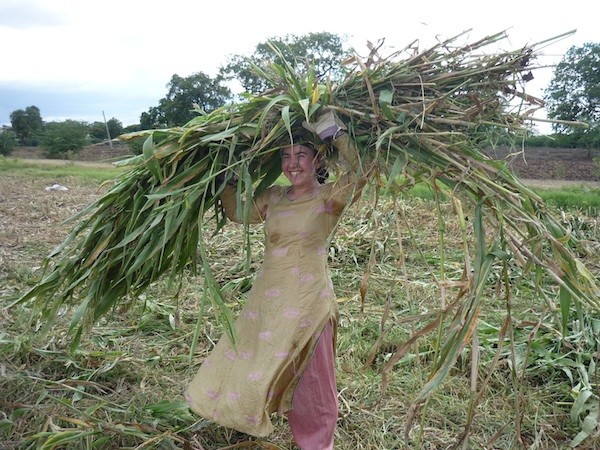
In theory, it does sound inefficient to expend a large amount of resources to accomplish little projects. It seems as though it would be better to just send money to support the local churches that are already established in these countries. But from my personal experience, I’ve realized that local churches long for us to come and visit them.
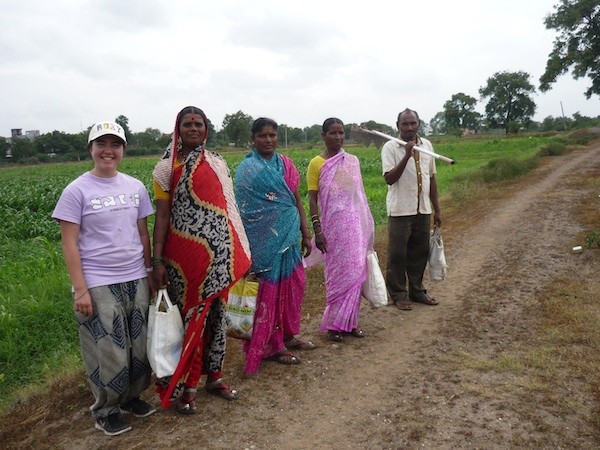
Last year, I met an African pastor who had travelled to Canada to plead for us to go to encourage the church there. When I went to India, I could see how the local workers were so thankful that our team came. During our time at the mission, we were able to serve the workers and give them a much needed break – time when they could be refreshed and poured into so that they could keep working when we left.

Our presence and support encourages churches in a way that no amount of resources ever could. Churches are excited for you to come. In going, we also will be encouraged by learning from church’s amazing faith, which can help us to pour into our church when we return home and serve newcomers coming to Canada.
GAiN has long term projects established where they send LIFE teams, so in joining a project you can help work towards lasting change even if you can only go personally for just a season. These short-term trips can bring joy, hope and transformation in ways we can’t think or imagine.
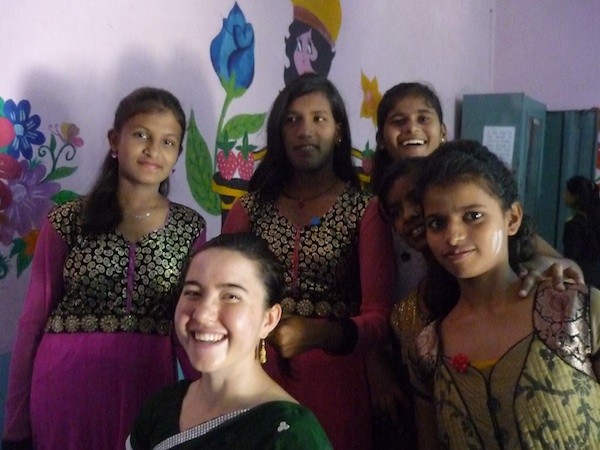
3. YOU CAN USE YOUR SKILLS TO MAKE A DIFFERENCE
There is work out there that only you, with your personality, skills, passions, and experience can do. During my time in India, I was able to teach chemistry, work on a farm, and lead singing and music for a worship service. I was amazed to see how the skills I have could be used to serve others! You, too, have unique gifts and abilities that you can use to make a difference in the lives of those who need it.
I am the person I am today because of the summer projects I have participated in. In the past three years, I have helped with humanitarian projects in rural South Africa, shared God’s message of hope with those living in need in inner-city Toronto, and cared for orphans and widows in India.
My faith has grown through these projects as I have met people with profound faith and hope. I’ve tried to use the gifts God has given me to love and serve others. It is through these experiences that I was able to step out of my comfort zone and grow stronger in my faith.
My heart has been broken by the extreme poverty that I’ve seen, but I’ve also been encouraged as I’ve seen faces light up at hearing messages of hope for the first time. I can’t imagine anything more fulfilling – and so I can’t help but go. I am incredibly excited to travel to India again this summer and continue to develop the relationships I made last summer. I know great things will be done.
I’ve listed some reasons why I think everyone should participate in a GAiN LIFE team, but I understand it’s not always possible for everyone to go. Sometimes it just isn’t the right time, but that doesn’t mean you should give up completely. I wish for you to serve and care for others, wherever you are this summer, but consider joining a LIFE team (especially consider joining me in India)!
THIS SUMMER YOU HAVE AN OPPORTUNITY TO TAKE A STEP OF FAITH, HAVE AN EXPERIENCE YOU WOULDN’T THINK WAS POSSIBLE, IMPACT LIVES, AND DISCOVER MORE OF WHO YOU CAN BE.
WILL YOU GO?
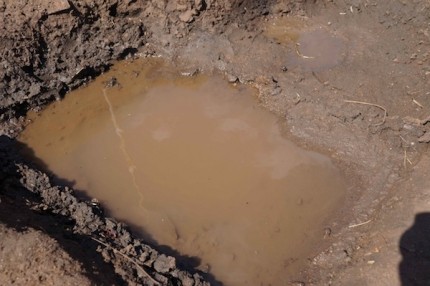
Imagine if the only way you could access water was to dig holes in a swamp and wait all night for water to seep in? This was the reality of women in the village of Mwandila, Tanzania.
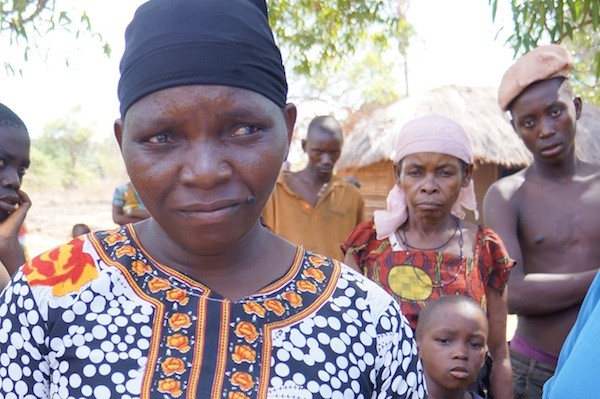
Waiting to fill a bucket of water often required sleeping by the hole all night long so that they would have something to bring home the next morning.
Sleeping in the swamp was very cold and uncomfortable, not to mention dangerous.
You can imagine the joy these women felt once a well was drilled in the village.
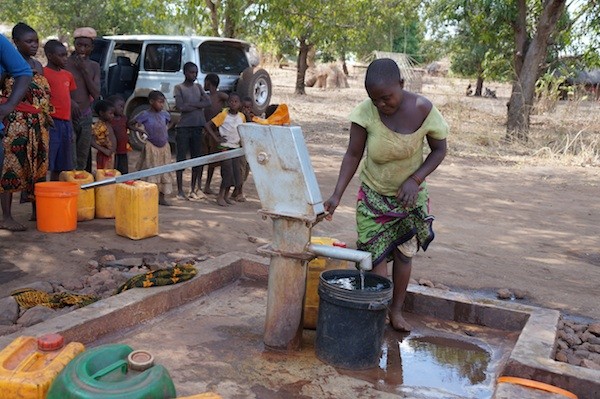
Not only did they have access to clean water instead of muddied water, they no longer had to endure harsh conditions in order to get it.
Today, the well is providing more than just disease-free water to the village, it is also creating opportunities to further wellness in the community. Mwandila now has plans to build a clinic with the excess funds from the sale of water.
